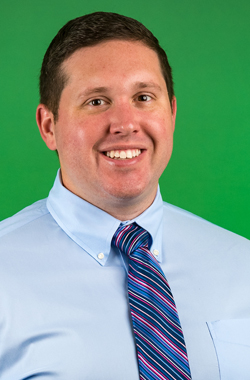Cancer treatment and your heart
- Category: Cancer Care, Senior Health Minute, Heart & Vascular, Oncology
- Posted On:
- Written By: Dr. Christopher LaTour

Cancer treatment effects on patients
Chemotherapy and other anti-cancer drugs are designed to fight cancer. With the success of cancer therapies at treating cancer, some of these life-saving treatments can sometimes cause direct damage to the heart. This is called cardiotoxicity.
Cardiotoxicity can develop during cancer treatment or can occur within days, months, or years after cancer treatment, once patients are cancer-free.
Heart damage caused by chemotherapy-induced cardiotoxicity can reduce quality of life and increase the risk of death from cardiac-related causes.
Touro's Non-Invasive Cardiologist, Dr. Christopher Latour works with Touro Oncologists and their patients throughout their cancer treatment to monitor the patient's risk for heart failure.
Symptoms of Cardiotoxicity
- Shortness of breath
- Chest pain
- Heart palpitations
- Fluid retention in the legs
- Distention of the stomach
- Dizziness
Cancer Drugs
Cancer drugs can cause many cardiac side effects, including heart failure, high blood pressure, low blood pressure, heart attacks, irregular heartbeat, slow heart rate or fluid around the heart.
Radiation therapy
Radiation therapy to the chest can cause fibrosis, which can lead to heart valve disease, heart attack and thickening of the lining of the heart, leading to a condition called constrictive pericarditis.
This is where a Cardiologist and an Oncologist come together.
Cardio-oncology
Cardiologists work together with a multidisciplinary team of oncologists, hematologists, and others to determine an individual patient's risk for cardiotoxicity by clinical examination and special testing before cancer treatment starts. If a patient is at risk, the cardiologist can implement measures along with the oncologist to decrease this risk before treatment begins. If a patient starts to develop signs of cardiotoxicity during their cancer treatment, the cardiologist may treat the cardiotoxicity preventing the need to interrupt treatment.
In addition, the oncologist may alter the patient’s treatment plan. The goal of the collaboration of a cardiologist and an oncologist in a discipline known as Cardio-Oncology, is to maximize the treatment of cancer while preserving cardiac function.
What if I think I am having symptoms that involves my heart?
Talk to your oncologist or primary care doctor. Your doctor can refer you to a cardiologist or a cardio-oncologist. Make sure to learn about what side effects can be caused by your cancer treatment. That way you can help inform your health care team and they can catch it early.
To learn more about heart and vascular care at Touro, visit: touro.com/heart

![]()
Dr. Latour specializes in Heart and Vascular Care at Touro. He attended Louisiana State University School of Medicine and completed his residency at Tulane School of Medicine and is board-certified by the American Board of Internal Medicine.


